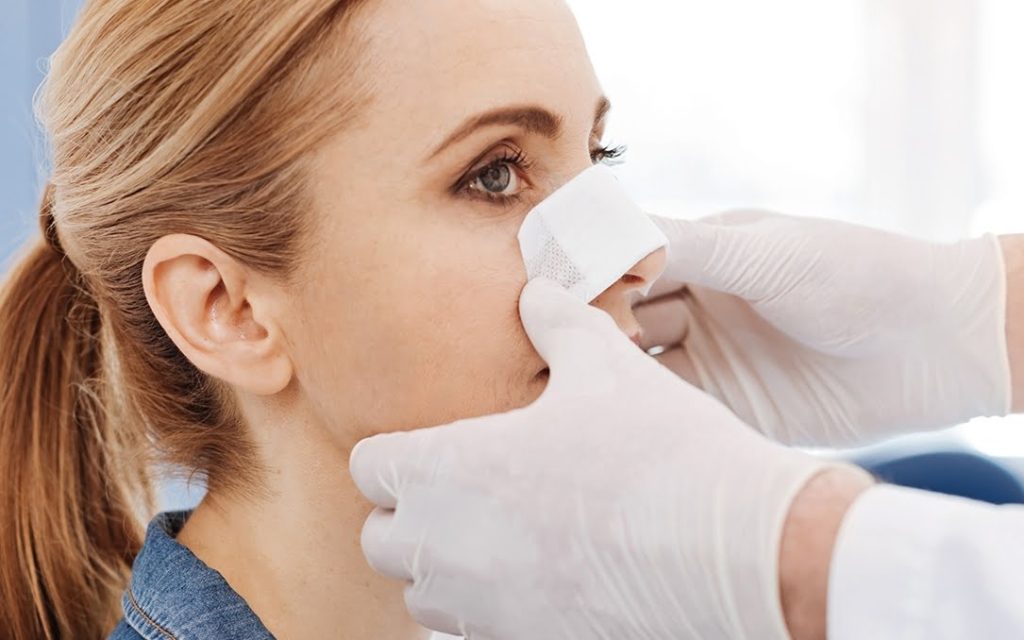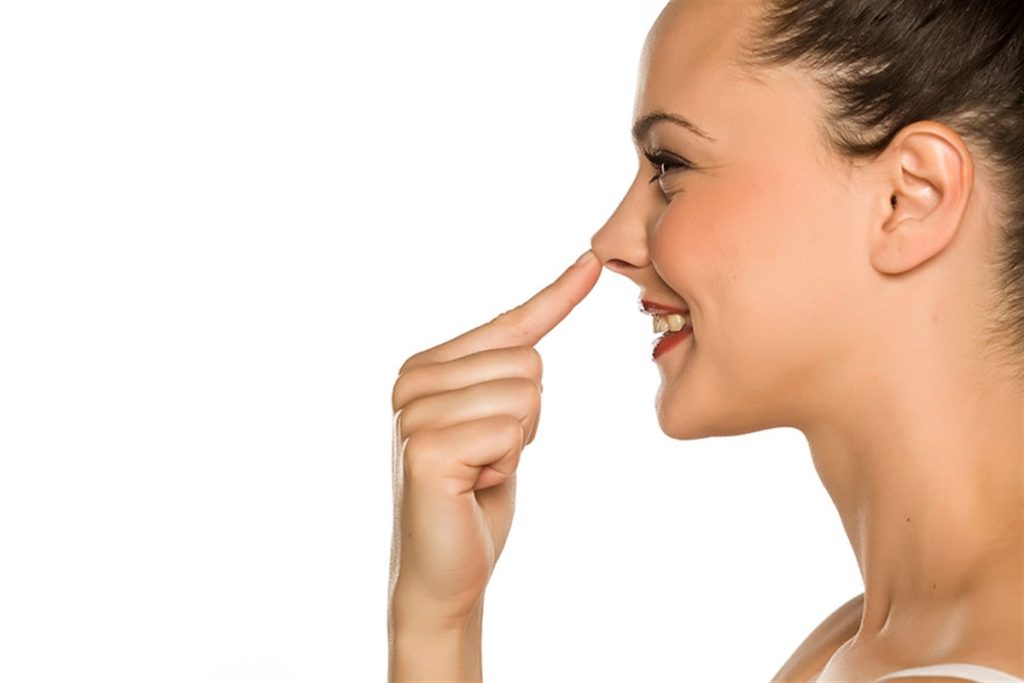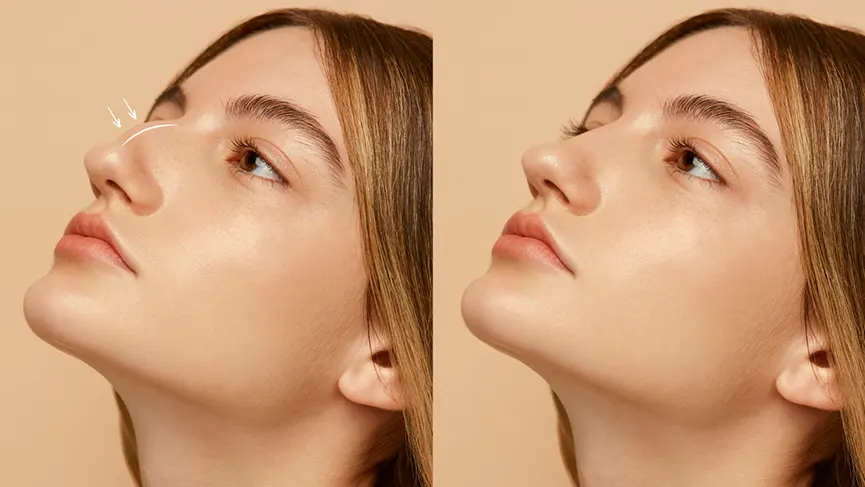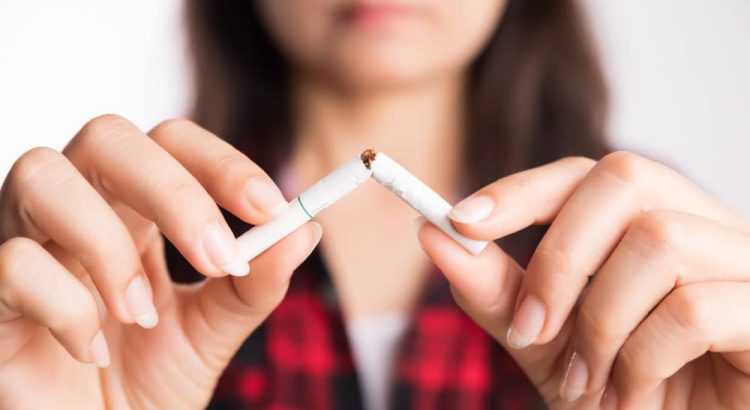Welcome to our blog post on the healing process after rhinoplasty and the potential risks associated with smoking during the recovery period. Rhinoplasty is a common cosmetic surgery procedure aimed at enhancing the appearance of the nose. However, like any surgical procedure, it requires a certain healing process to ensure successful and optimal results. In this article, we will delve into the impact of smoking on post-operative recovery, the complications that may arise from smoking after rhinoplasty, and provide you with valuable tips for quitting smoking before and after surgery. Let’s get started!
Contents;
The Healing Process After Rhinoplasty

Rhinoplasty, also known as a nose job, is a surgical procedure that aims to reshape or reconstruct the nose. It can be done for various reasons, such as improving the appearance of the nose or correcting breathing difficulties. Like any surgery, rhinoplasty requires a certain healing process to ensure a successful outcome. Understanding the healing process after rhinoplasty is crucial for patients to have realistic expectations and take proper care of their noses.
One of the key factors in the healing process after rhinoplasty is swelling. Swelling is a natural response of the body to trauma, and it is expected after any surgical procedure. In the case of rhinoplasty, swelling may be more pronounced in the first few days or weeks following surgery and gradually subside over time. It is important for patients to understand that the final results of the surgery may not be visible until the swelling has completely resolved, which can take several months.
The healing process also involves the formation of scar tissue. Incisions are made during rhinoplasty to access the underlying structures of the nose. Although surgeons make these incisions as inconspicuous as possible, they still result in scars. Over time, the scars will fade and become less noticeable, but it is essential for patients to follow their surgeon’s instructions on scar care to promote optimal healing.
- In addition to swelling and scar formation, it is important to understand that the healing process after rhinoplasty is unique to each individual. Factors such as the patient’s age, overall health, and ability to follow post-operative instructions can affect the speed and quality of healing. It is crucial for patients to have realistic expectations and remain patient throughout the healing process.
- Avoiding certain activities and behaviors can also contribute to a smooth healing process after rhinoplasty. Smoking, for example, can have a detrimental effect on the healing process. Smoking causes vasoconstriction, which reduces blood flow to tissues. This can result in delayed wound healing, increased risk of infection, and poor scarring. It is highly recommended for patients to quit smoking before and after rhinoplasty to optimize the healing process and reduce potential risks.
| Complications that May Arise from Smoking Post-Rhinoplasty: |
|---|
| Infection: Smoking reduces the body’s ability to fight off infections, making smokers more susceptible to post-operative infections after rhinoplasty. |
| Poor Wound Healing: The reduced blood flow caused by smoking can impair the body’s ability to heal wounds effectively, leading to slow or incomplete healing. |
| Necrosis: In severe cases, smoking after rhinoplasty can lead to tissue death or necrosis. This can result in significant complications and may require additional surgical interventions. |
Understanding the healing process after rhinoplasty is crucial for patients to have realistic expectations and take the necessary steps to ensure a successful recovery. It is essential to follow the surgeon’s post-operative instructions carefully and avoid activities that can hinder the healing process, such as smoking. By being proactive and taking proper care, patients can achieve the desired results and enjoy the benefits of their rhinoplasty for years to come.
Potential Risks Of Smoking After Rhinoplasty

After undergoing rhinoplasty surgery, it is important to be aware of the potential risks associated with smoking. Smoking has a detrimental effect on the healing process and can lead to serious complications. In this blog post, we will discuss why smoking after rhinoplasty is risky and how it can impact the outcome of the surgery.
One of the main reasons smoking is considered dangerous after rhinoplasty is because it impairs the body’s ability to heal. Smoking restricts blood vessels, reducing the blood flow to the surgical site. This can result in delayed wound healing and increase the risk of infection. Additionally, smoking hinders the delivery of oxygen and nutrients to the tissues, further slowing down the healing process.
Furthermore, smoking after rhinoplasty can cause complications such as poor wound healing, necrosis (tissue death), and skin graft failure. The chemicals present in cigarettes, particularly nicotine, constrict blood vessels and decrease tissue oxygenation. This compromises the body’s natural healing mechanisms and significantly increases the risk of complications.
- Smoking restricts blood vessels
- Reduces blood flow to the surgical site
- Increases the risk of infection
- Poor wound healing
- Tissue necrosis
- Skin graft failure
Patients who smoke and undergo rhinoplasty surgery are more likely to experience complications such as prolonged swelling, prolonged bruising, and unsatisfactory aesthetic results. Smoking can also interfere with the formation of new blood vessels, which are vital for tissue regeneration. As a result, the nose may not heal properly, and the final outcome of the surgery may be compromised.
| Smoking Risks After Rhinoplasty |
|---|
| 1. Impaired blood flow |
| 2. Delayed wound healing |
| 3. Increased risk of infection |
| 4. Poor tissue oxygenation |
| 5. Complications with skin grafts |
To minimize the potential risks associated with smoking after rhinoplasty, it is strongly recommended to quit smoking at least two weeks before the surgery and abstain from smoking for at least two weeks afterward. Completely avoiding smoking is the best course of action to support a successful and uncomplicated recovery.
In conclusion, smoking after rhinoplasty poses significant risks to the healing process and can lead to complications that jeopardize the outcome of the surgery. It is crucial for patients to understand the negative impact smoking can have on blood circulation, tissue oxygenation, and wound healing. Quitting smoking before and after rhinoplasty is essential for a safe and successful recovery.
Impact Of Smoking On Post-Operative Recovery

Smoking is a habit that has numerous negative impacts on our health. Not only does it increase the risk of various diseases, it also significantly affects the healing process after surgical procedures. In the context of post-operative recovery, smoking can have a profound impact on the body’s ability to heal and regenerate.
One of the primary ways smoking affects post-operative recovery is through its impact on blood circulation. Smoking leads to the constriction of blood vessels, reducing the amount of oxygen and nutrients that reach the surgical site. Oxygen is crucial for tissue healing, as it helps in the formation of new blood vessels and promotes cell growth. When the body lacks sufficient oxygen, the healing process slows down, and complications may arise.
Furthermore, smoking impairs tissue oxygenation. The carbon monoxide present in cigarette smoke binds with hemoglobin in the blood, reducing its ability to transport oxygen to the tissues. This results in decreased oxygen levels in the surgical site, further compromising the healing process. Reduced tissue oxygenation can lead to delayed wound healing, increased risk of infection, and poorer overall outcomes after surgical procedures.
How Smoking Affects Blood Circulation And Tissue Oxygenation

Smoking is a habit that has various negative effects on the body, including its impact on blood circulation and tissue oxygenation. When a person smokes, the chemicals in cigarette smoke can cause the blood vessels to constrict, reducing the flow of blood to different parts of the body. This constriction also affects the small blood vessels in the skin, which can lead to a decrease in oxygen supply to the tissues.
One of the main components of cigarette smoke is carbon monoxide. When inhaled, carbon monoxide binds to red blood cells, reducing their ability to carry oxygen efficiently. This means that less oxygen is available to be delivered to the tissues, causing a decrease in tissue oxygenation. Reduced tissue oxygenation can have negative effects on wound healing and can impair the body’s ability to repair damaged tissues.
In addition to affecting blood circulation and tissue oxygenation, smoking also increases the risk of blood clot formation. The chemicals in cigarette smoke can damage the lining of blood vessels, causing them to become narrower and increasing the likelihood of blood clots. These blood clots can further exacerbate the impaired blood flow and decrease tissue oxygenation, leading to complications in the healing process.
- Smoking can significantly slow down the healing process after surgery, including rhinoplasty. The reduced blood flow and oxygen supply to the tissues can delay wound healing and increase the risk of infections. When the body’s oxygen supply is compromised, it becomes more challenging for the immune system to fight off bacteria and other harmful agents, increasing the likelihood of post-operative complications.
- It is vital for individuals planning to undergo rhinoplasty or any other surgical procedure to quit smoking before and after surgery. Quitting smoking at least four weeks before surgery can help reduce the adverse effects of smoking on blood circulation and tissue oxygenation. This can improve the chances of a successful surgery and a smoother recovery process. Moreover, quitting smoking after surgery can also have long-term benefits on overall health.
- There are various methods and strategies available to help people quit smoking. These include nicotine replacement therapy, counseling, and support groups. It is essential for individuals to seek professional help and support to overcome this addiction successfully. Quitting smoking not only improves blood circulation and tissue oxygenation but also benefits overall health, reducing the risk of various diseases and improving quality of life.
| Potential Risks of Smoking After Rhinoplasty: | Impact of Smoking on Post-Operative Recovery: | Complications That May Arise From Smoking Post-Rhinoplasty: |
|---|---|---|
| Increased risk of infections | Delayed wound healing | Impaired blood flow |
| Poor tissue oxygenation | Higher likelihood of complications | Increased risk of blood clots |
| Reduced chances of successful surgery | Longer recovery period | Reduced tissue oxygenation |
Complications That May Arise From Smoking Post-Rhinoplasty
Smoking is a habit that comes with a wide range of complications, especially when it comes to post-rhinoplasty recovery. Rhinoplasty, or nose reshaping surgery, is a common cosmetic procedure that aims to improve the function and appearance of the nose. However, smoking after rhinoplasty can greatly increase the risk of complications and negatively impact the healing process.
One of the main complications that may arise from smoking post-rhinoplasty is impaired wound healing. Smoking constricts blood vessels, leading to reduced blood flow and oxygenation to the tissues. This can result in slower tissue healing, increased risk of infection, and delayed recovery time. To ensure a successful recovery, it is essential to avoid smoking and any tobacco products during the healing period.
Additionally, smoking after rhinoplasty can increase the risk of nasal congestion and inflammation. Smoking irritates the nasal passages and can cause the blood vessels to constrict, leading to nasal congestion and poor oxygenation. This can hinder the healing process and prolong swelling and discomfort. It is crucial to give up smoking to promote proper nasal healing and minimize the risk of complications.
Furthermore, smoking can also increase the likelihood of developing complications like nasal infections and poor scar formation after rhinoplasty. The toxins present in cigarette smoke weaken the immune system, making it more difficult for the body to fight off infections. Additionally, smoking can impair collagen production and affect the quality of scar formation. This can result in more visible or hypertrophic scarring, which can be aesthetically displeasing.
- In summary, smoking after rhinoplasty can lead to a variety of complications that can negatively impact the healing process and final results. It is important to quit smoking both before and after the surgery to minimize the risks and ensure a successful recovery. By abstaining from smoking, individuals can promote optimal blood circulation, tissue oxygenation, and immune response, allowing for faster healing and better outcomes. If you are considering rhinoplasty, it is crucial to have an open and honest discussion with your surgeon about your smoking habits and the potential risks involved. Your surgeon can provide you with guidance and support to help you quit smoking and achieve the best possible results.
| Complications of Smoking Post-Rhinoplasty |
|---|
| Inhibited wound healing |
| Nasal congestion and inflammation |
| Increased risk of infections |
| Poor scar formation |
Tips For Quitting Smoking Before And After Surgery
Smoking is a harmful habit that can have serious consequences on one’s health, especially when it comes to surgery. Whether you are planning to undergo a rhinoplasty or any other type of surgical procedure, quitting smoking before and after surgery is highly recommended for a successful recovery. Not only does smoking significantly increase the risk of complications during and after surgery, but it can also hinder the body’s ability to heal properly.
One of the main reasons why quitting smoking before and after surgery is vital is because smoking can have a negative impact on the healing process. When you smoke, the harmful chemicals present in tobacco smoke can restrict blood vessels and impair proper blood circulation. This reduction in blood flow means that essential nutrients and oxygen needed for the healing process may not reach the surgical site efficiently. As a result, the body’s ability to repair and regenerate tissues is compromised, leading to delayed healing and an increased risk of infections.
Additionally, smoking can also weaken the immune system, making it less effective in fighting off infections and supporting the healing process. This can further increase the likelihood of complications after surgery. Studies have shown that smokers are more prone to post-operative complications such as delayed wound healing, infections, and even tissue death. Therefore, it is crucial to quit smoking to minimize these risks and ensure a smooth recovery after surgery.
- Quitting smoking is not an easy task, especially for those who have been smokers for a long time. However, with determination and the right support, it is possible to kick the habit for good. Before undergoing surgery, it is advisable to seek professional help and guidance from healthcare providers who can provide effective strategies and resources to help you quit smoking successfully.
- Creating a support system can also greatly increase your chances of quitting smoking before and after surgery. Inform your family, friends, and loved ones about your decision to quit and ask for their understanding and support. Having someone to lean on during the challenging moments can make a significant difference in your journey to being smoke-free.
- Implementing healthy habits can also aid in quitting smoking and promoting a speedy recovery after surgery. Engaging in regular exercise, eating a balanced diet, and managing stress can help alleviate tobacco cravings and keep you focused on your goal of quitting. These healthy habits will not only improve your overall well-being but also enhance the effectiveness of the surgical procedure and improve your chances of a successful recovery.
| Benefits of quitting smoking before and after surgery | Risks of continuing to smoke before and after surgery |
|---|---|
| 1. Enhanced blood circulation and tissue oxygenation | 1. Impaired blood flow and reduced oxygen supply |
| 2. Reduced risk of infections and complications | 2. Increased risk of post-operative infections and complications |
| 3. Faster healing and recovery | 3. Delayed healing and prolonged recovery time |
Why Choose Rhinoplasty In Turkey? Affordable Price – Quality Service
Diamond Rhinoplasty in ISTANBUL TURKEY
10 Common Questions About Rhinoplasty Answered
